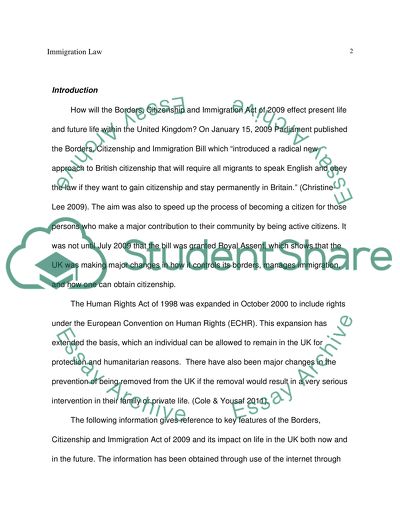Cite this document
(“Immigration Law: Features Of The Borders, Citizenship And Immigration Essay”, n.d.)
Retrieved de https://studentshare.org/law/1390783-immigration-law-features-of-the-borders-citizenship-and-immigration-act-of-2009-and-challenging-the-human-rights-act-of-1998
Retrieved de https://studentshare.org/law/1390783-immigration-law-features-of-the-borders-citizenship-and-immigration-act-of-2009-and-challenging-the-human-rights-act-of-1998
(Immigration Law: Features Of The Borders, Citizenship And Immigration Essay)
https://studentshare.org/law/1390783-immigration-law-features-of-the-borders-citizenship-and-immigration-act-of-2009-and-challenging-the-human-rights-act-of-1998.
https://studentshare.org/law/1390783-immigration-law-features-of-the-borders-citizenship-and-immigration-act-of-2009-and-challenging-the-human-rights-act-of-1998.
“Immigration Law: Features Of The Borders, Citizenship And Immigration Essay”, n.d. https://studentshare.org/law/1390783-immigration-law-features-of-the-borders-citizenship-and-immigration-act-of-2009-and-challenging-the-human-rights-act-of-1998.


